
A Swiss hospice where people can die with dignity
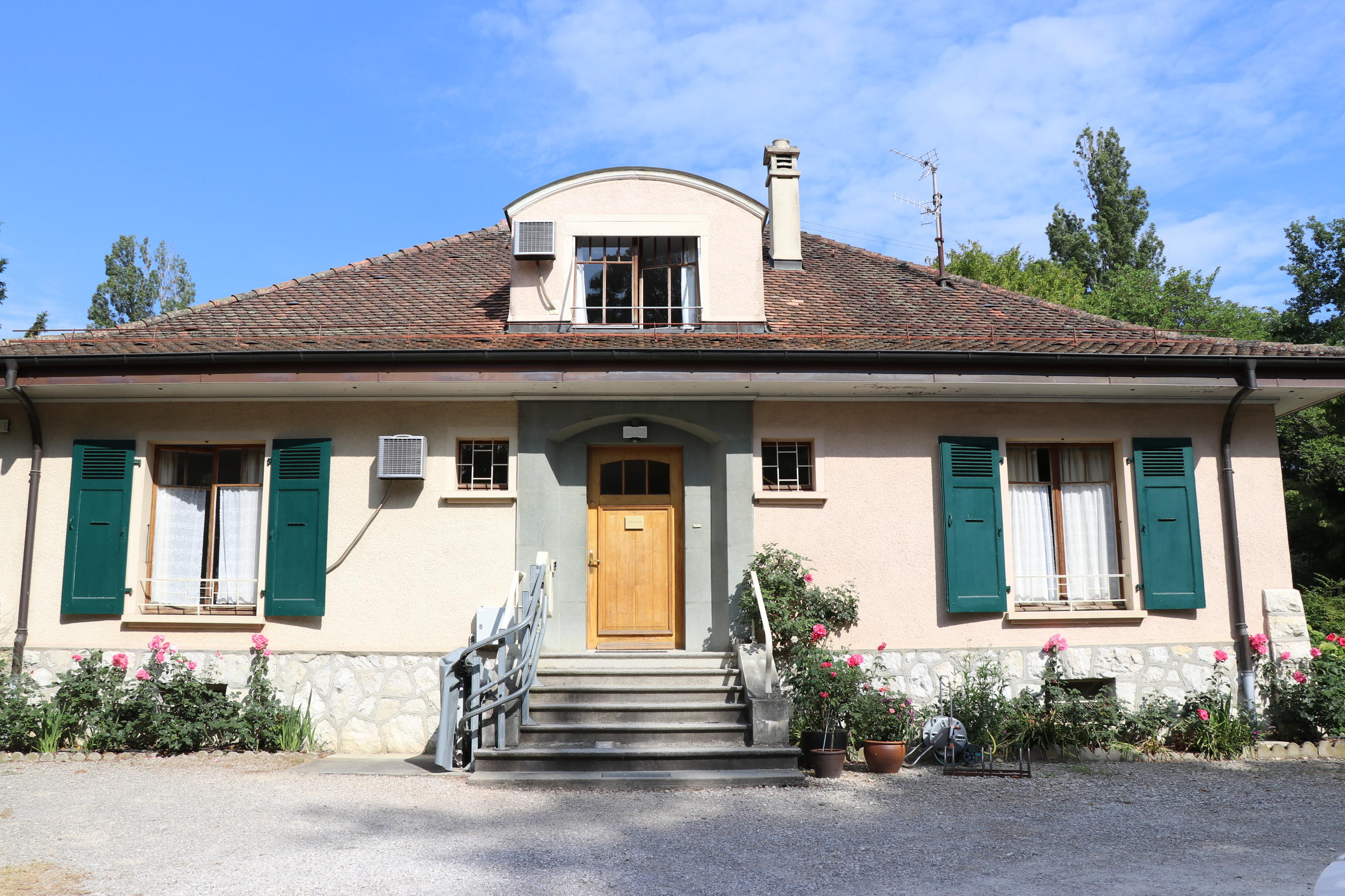
When the light of life is going out, many people wish to spend their last days at home. In Geneva, La Maison de Tara, or Tara’s House, provides an alternative to hospitalisation for those who can no longer stay in their own homes.
It is 10am on a Tuesday in late October. Pierre, a 54-year-old volunteer, is having breakfast with a resident of La Maison de Tara in the dining room on the ground floor.
It is 12°C outside and the sky is overcast. The trees in the large garden have lost their colours. A cold wind shakes their branches. Winter is coming.
On the table are diced kiwi, a slice of wholemeal bread with butter and Cenovis, a savoury spread, as well as a glass of lemon squash and a cup of coffee. This is exactly what the resident in the wheelchair wanted for breakfast.
The only sound in the room is the clinking of cutlery.
The man in the wheelchair opens his mouth. He can no longer speak normally because of a brain tumour. He tells Pierre in a whisper: “The flowers have opened”. He means the rosebuds in the vase on the table. They have opened up. Pierre pushes the vase towards the man, who smells the flowers.
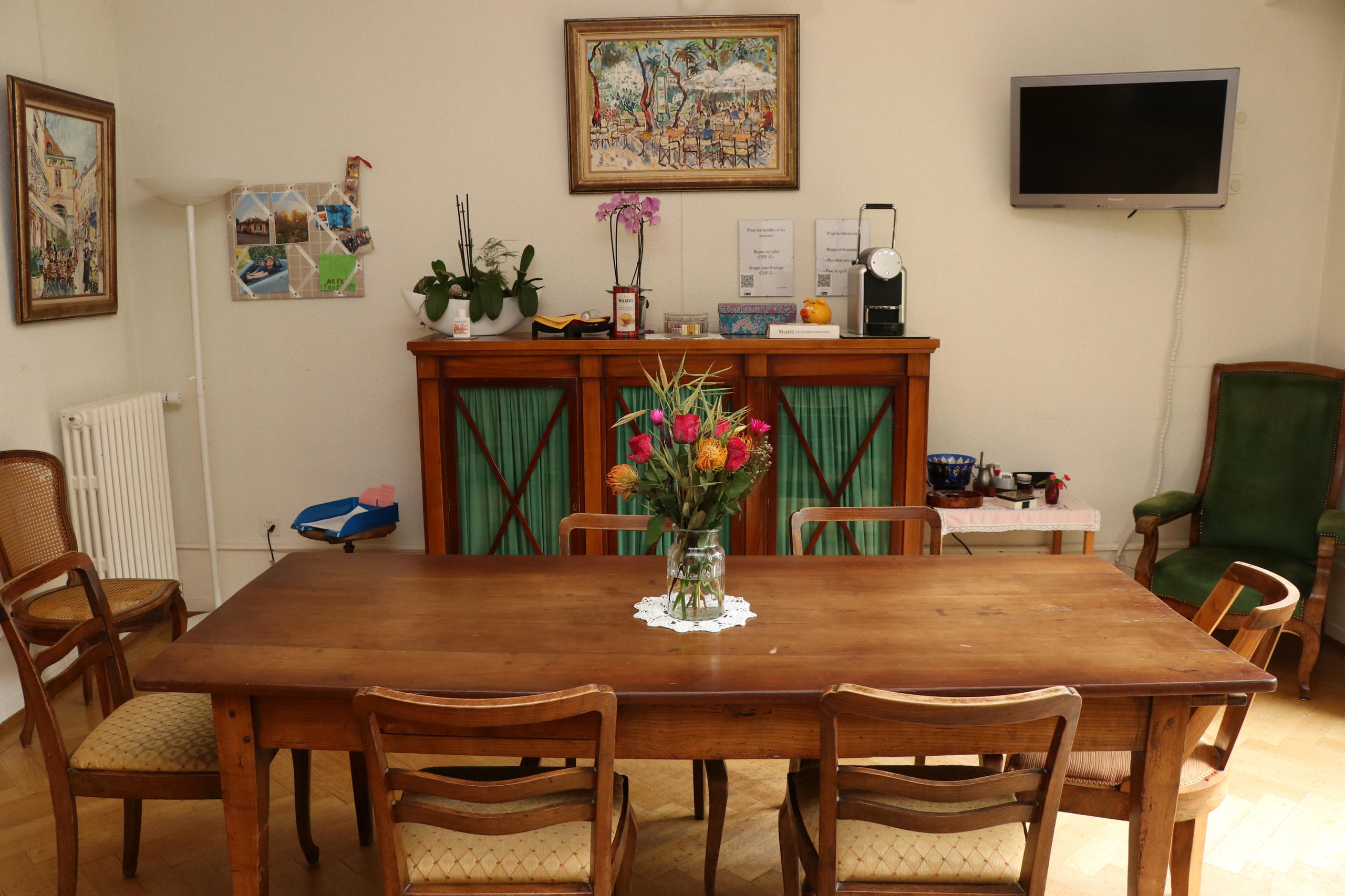
The cream-coloured villa is in a quiet residential area some 20 minutes by bus from Geneva city centre. There is nothing about the communal rooms on the ground floor to suggest that this is a palliative care home, except for a hand-sanitiser gel and two wheelchairs. No one would think that patients live here who are waiting to die.
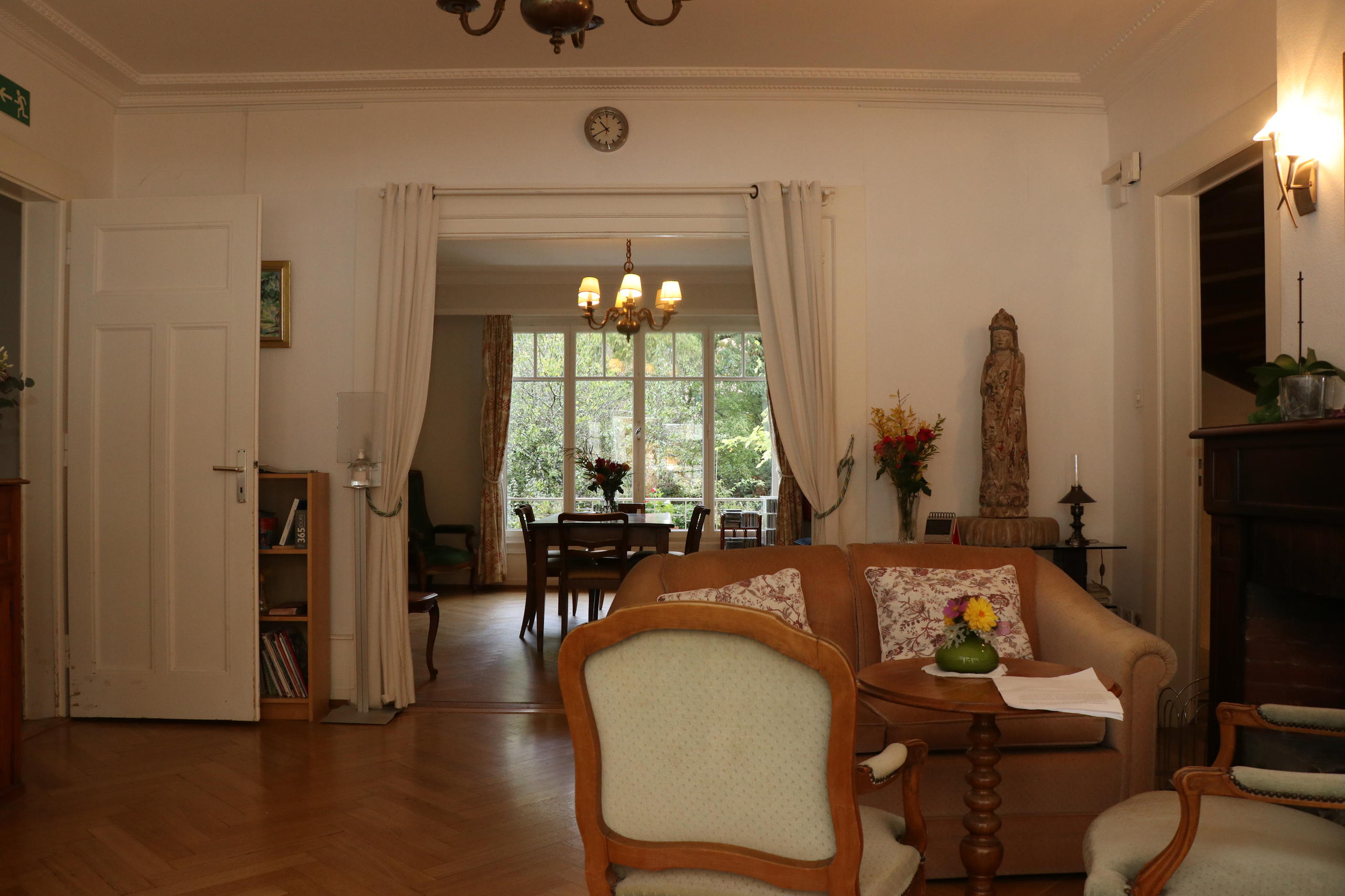
Inspired by a Dutch nursing home
There are no people in white coats here. Medical care is provided by home healthcare organisations and doctors who come to the patients. Just like at home. There are two private rooms on the ground floor and two on the first floor. The four residents are looked after by local volunteers like Pierre.
This was the goal of the founder, Anne-Marie Struijk-Mottu, when she set up La Maison de Tara. She wanted to provide an environment that was “just like home”.
Struijk-Mottu, who worked as a volunteer coordinator in medical and social institutions for the elderly and cared for her own grandparents and parents until they died, wanted to create a place where people could spend their last days in a homely atmosphere.
When she heard about a small hospice in the Netherlands where volunteers looked after the residents, she went to visit it. The idea of La Maison de Tara started to take form. In 2007, she set up a non-profit foundation and began training volunteers. In 2011, La Maison de Tara opened its doors as Switzerland’s first non-medical palliative care residence.
A home from home
The residents spend their days as they wish. Some stay in bed and watch television, while others go out into the garden to get some fresh air when the weather is nice. Lunch is prepared by the cook, but “sometimes the patients’ families prepare meals themselves”, says Sabine Murbach, the manager.
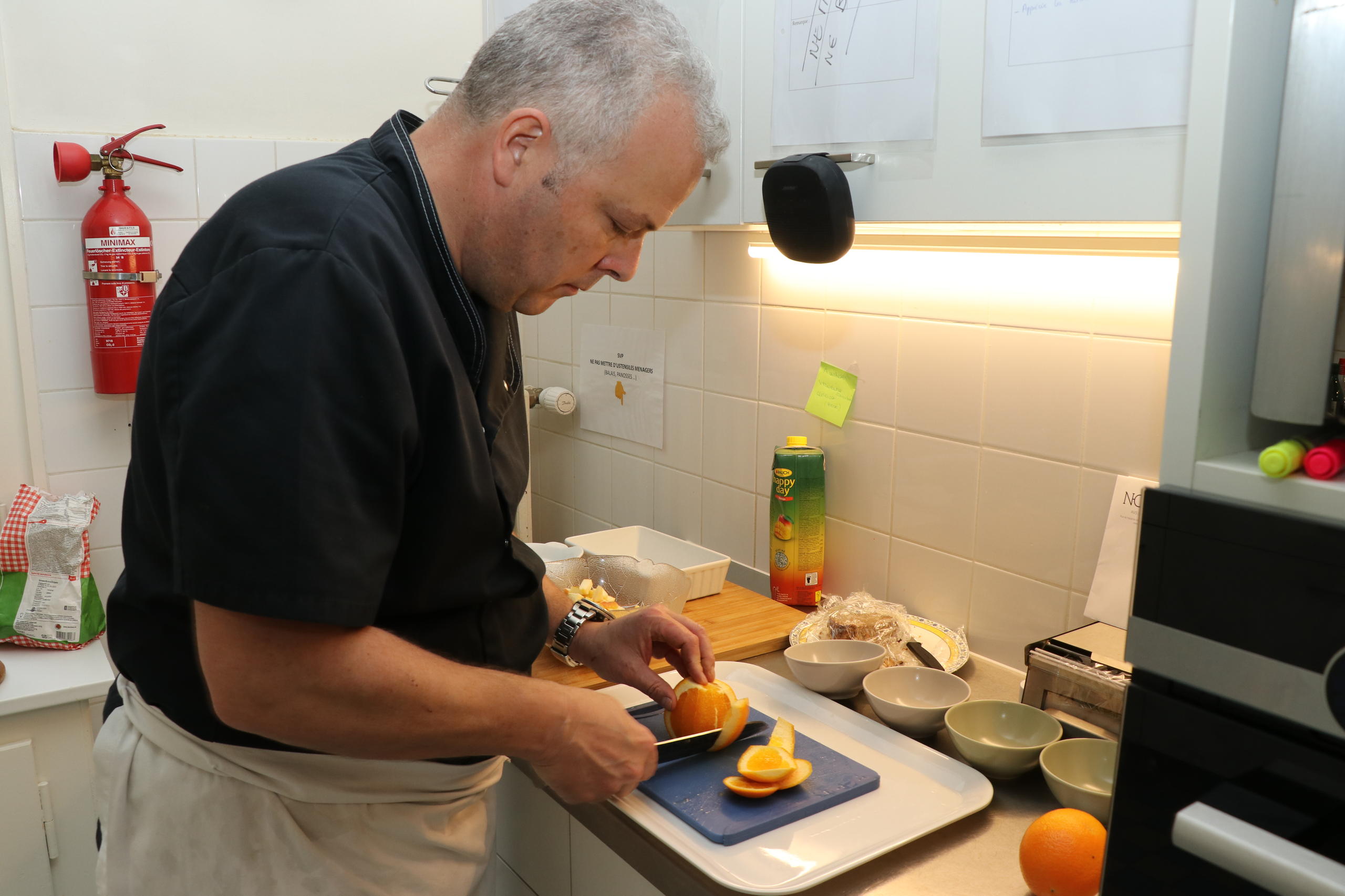
Christiane, 82, lives on the second floor. She was diagnosed with pancreatic cancer 18 months ago after her daughter noticed a yellowish discolouration of her skin. The doctor did not know how long she had left to live. She underwent 52 radiotherapy sessions, but the cancer returned after a year.
She came to La Maison de Tara on October 23. Before that, she had spent three months in hospital, which she did not like at all. “There were too many people coming and going. The doctors and nurses all seemed very busy. When I wanted to have a shower, the staff washed me with a cloth on the bed. I felt I was being treated like an object,” she says.
On the advice of her daughters, she decided to move to La Maison de Tara.
Here, Christiane feels at home. “This morning I showered in the bathroom with the help of the volunteers. I’m very proud,” she says with a laugh.
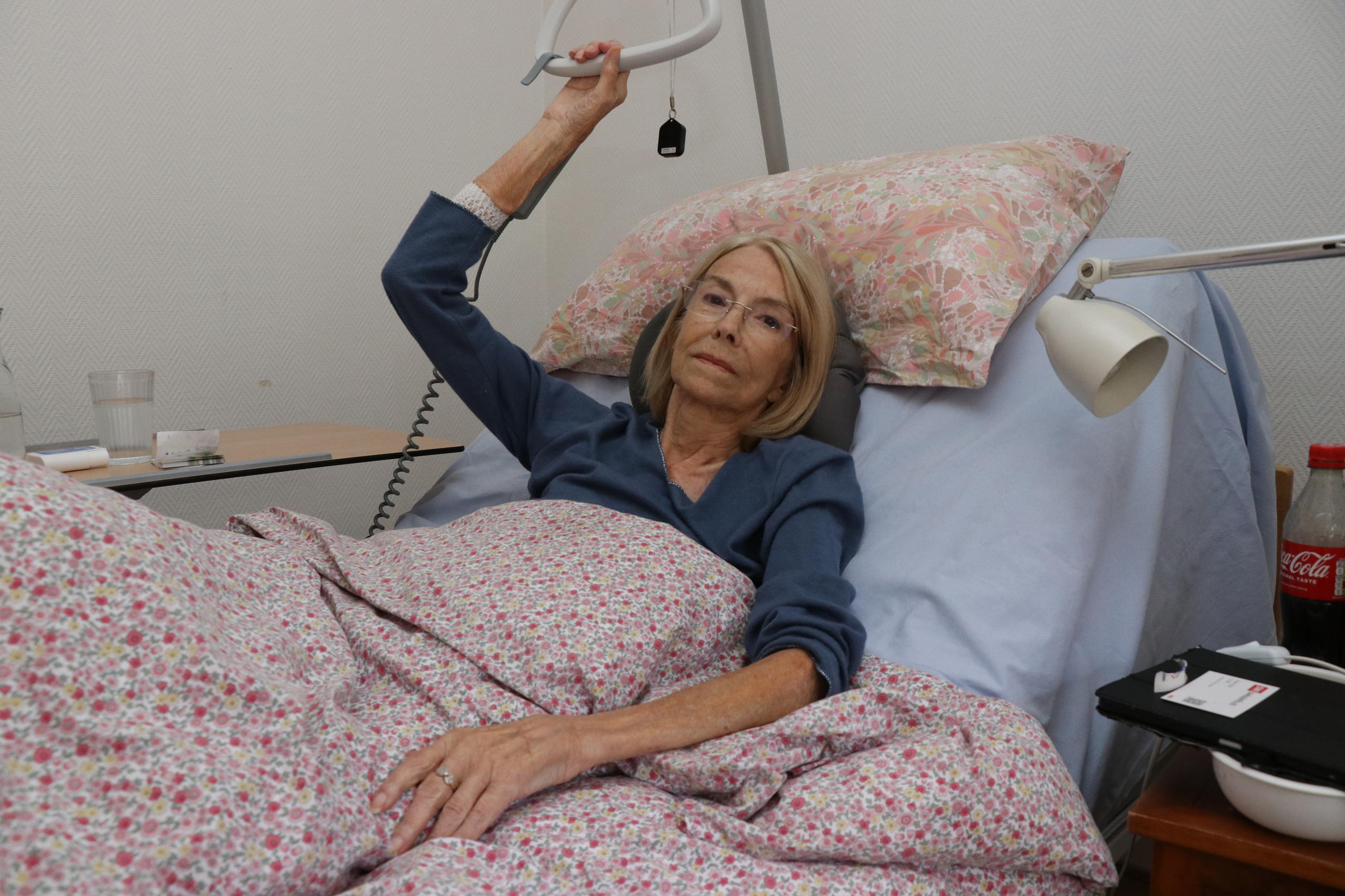
Three out of four people in Switzerland would like to spend their last days at home. Although care services do exist for these patients, it is sometimes difficult for the terminally ill and pain-stricken to stay at home.
“La Maison de Tara is there so that these people can spend their final days in a home-like environment,” says Murbach. Staying there costs CHF80 ($91) a day. Medical care, such as doctor’s visits, is covered by the residents’ health insurance.
Running the home costs CHF940,000 a year, much of which comes from private donations. Canton Geneva subsidises the training of the volunteers who will work there as carers.
Training centre for volunteers
In addition to ten paid employees, including Murbach, La Maison de Tara has around 100 volunteers, who take turns looking after the residents from 8am to 10pm. They come from different walks of life and include nursing professionals and lawyers, the economically active and retirees.
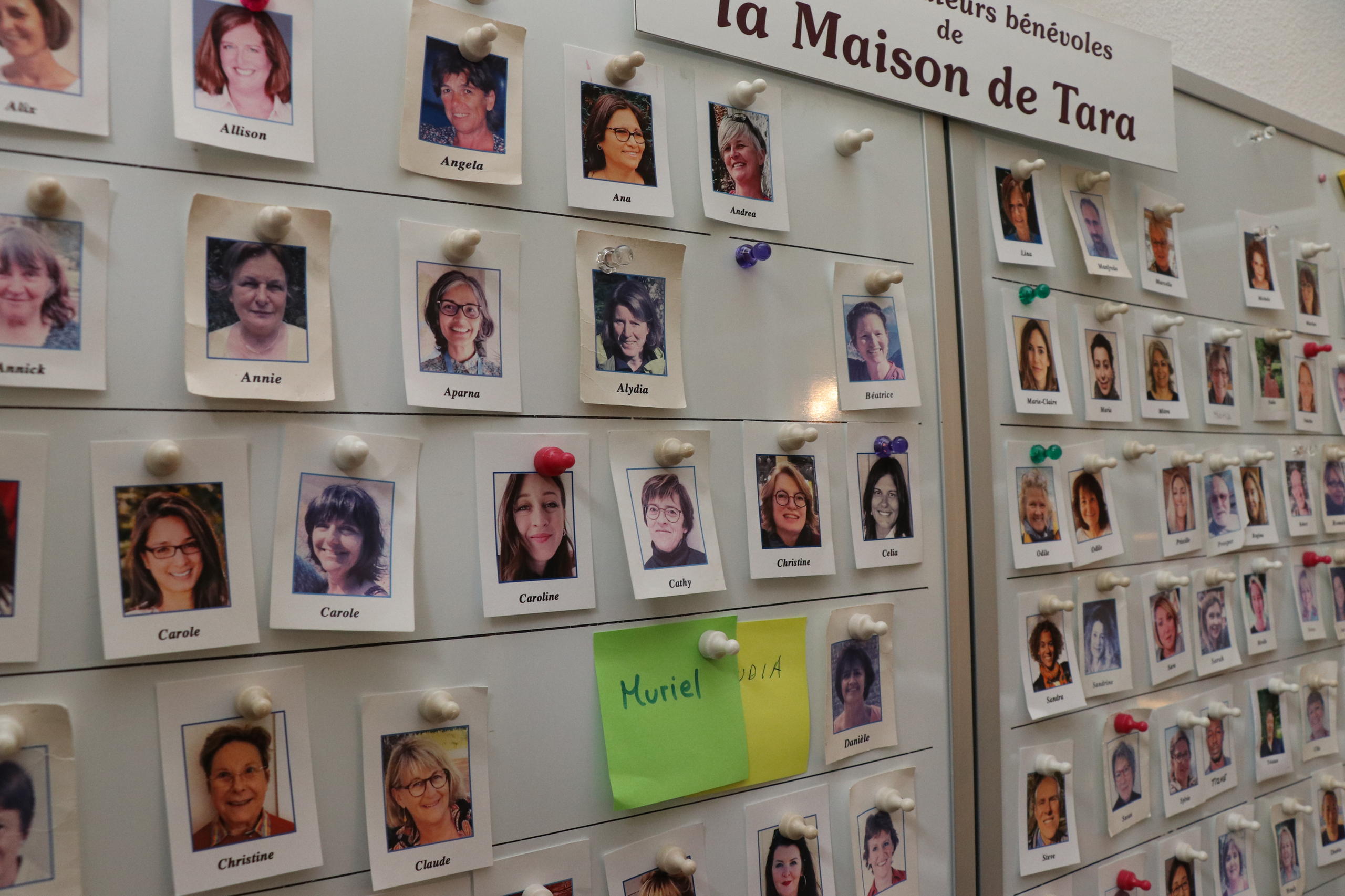
Pierre is a full-time hypnotherapist. “It would be sad to die alone and lonely. As a volunteer, you don’t have to do anything special. We’re just there for them. I think it’s a very good idea.”
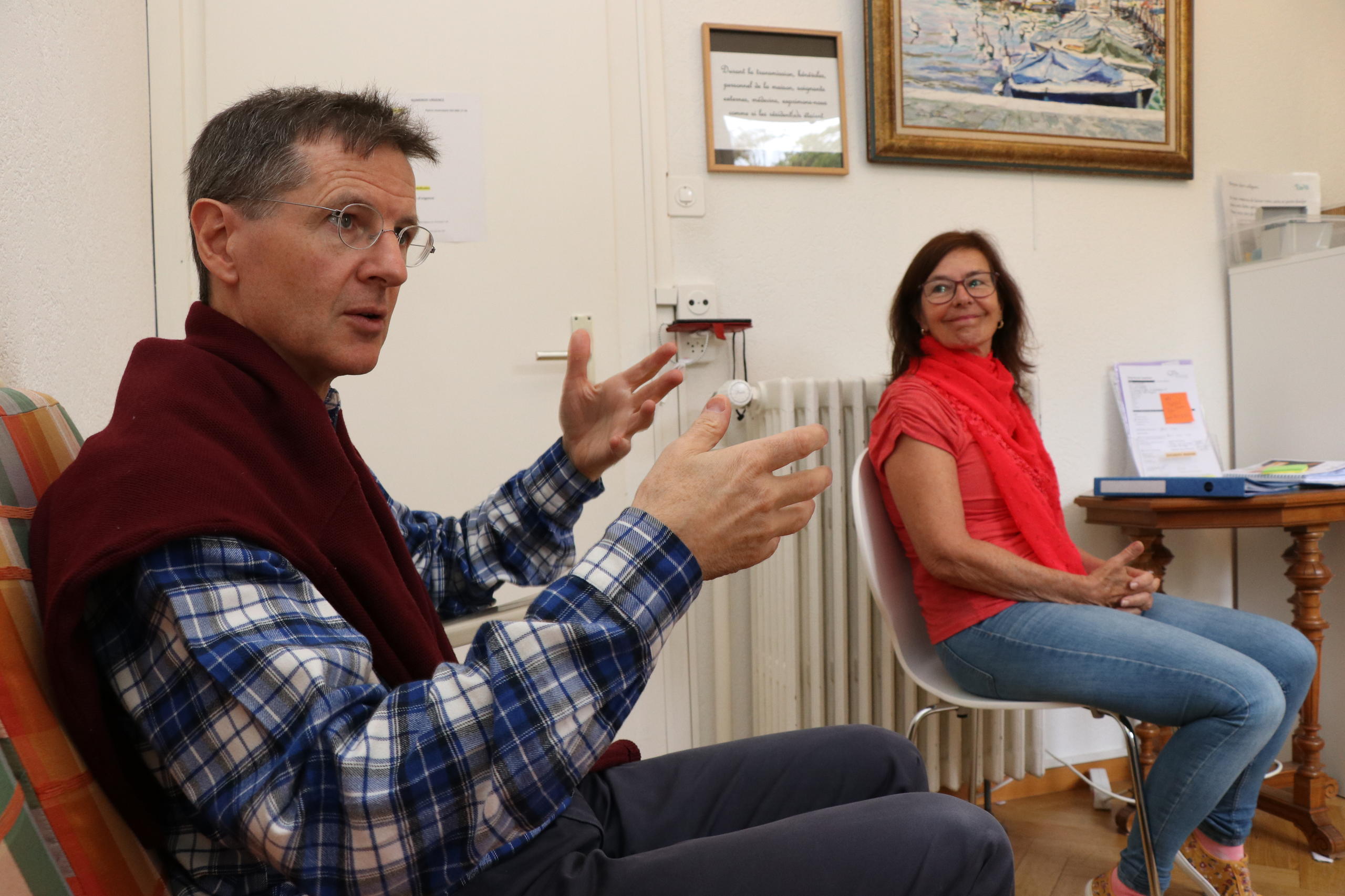
The volunteers’ training lasts one year. They come to La Maison de Tara at least twice a month to look after the residents’ personal needs. They can also attend monthly training sessions, where they learn not only how to care for the patients, but also what dying is all about and how to communicate with patients and relatives.
“They work here as volunteers, not to use it as a stepping stone to a job in nursing or care, but simply to make a contribution to the community,” says Murbach.
No assisted suicide
Assisted suicide is legal in Switzerland, but La Maison de Tara does not accept it on its premises. If a resident requests it and their return home is planned for this purpose, La Maison de Tara will make the necessary arrangements.
“We offer our residents support until the last moments of their lives,” says Murbach. “We do not deny the existence of right-to-die organisations, by any means. If the residents want to enjoy the last days of their lives, we will do our best to support them.”
Of the 270 people who have so far spent their final days at La Maison de Tara, only two have opted for assisted suicide.
Moving to new premises
La Maison de Tara will be moving next year. The building currently provided by the municipality will be demolished to enable the expansion of the neighbouring Belvédère primary school.
The residence will be relocated to another building owned by the local authorities near the Jean-Piaget upper-secondary school, around two kilometres from the current site. The municipal council of Chêne-Bougeries recently voted unanimously to allocate some CHF2.4 million to renovating the building.
If all goes according to plan, La Maison de Tara will be able to re-open its doors next autumn at its new location, with four rooms for residents.
Dying with dignity
Christiane’s two daughters live nearby and take turns visiting their mother. One of them is there every day.
Unlike in a hospital with all the hustle and bustle, here, with the help of the volunteers, Christiane can shower and eat without being rushed by anyone, in a relaxed and calm setting. “The volunteers at ‘the Tara’ treat me like a human being. That makes me very happy,” she says.
This is exactly the kind of care that La Maison de Tara is all about, Murbach stresses. “The volunteers are here because they want to be. They are not under time pressure like nursing staff or doctors, who have many patients to look after. The volunteers can take time to be with the residents.”
Christiane hopes to live until after Christmas. She does not know when her light will go out. “But until then, I want to spend my time in peace, surrounded by the family I love. For me, this is a death with dignity. And ‘the Tara’ gives me that.”
More
Edited by Marc Leutenegger. Translated from German by Julia Bassam.

In compliance with the JTI standards
More: SWI swissinfo.ch certified by the Journalism Trust Initiative
































You can find an overview of ongoing debates with our journalists here . Please join us!
If you want to start a conversation about a topic raised in this article or want to report factual errors, email us at english@swissinfo.ch.